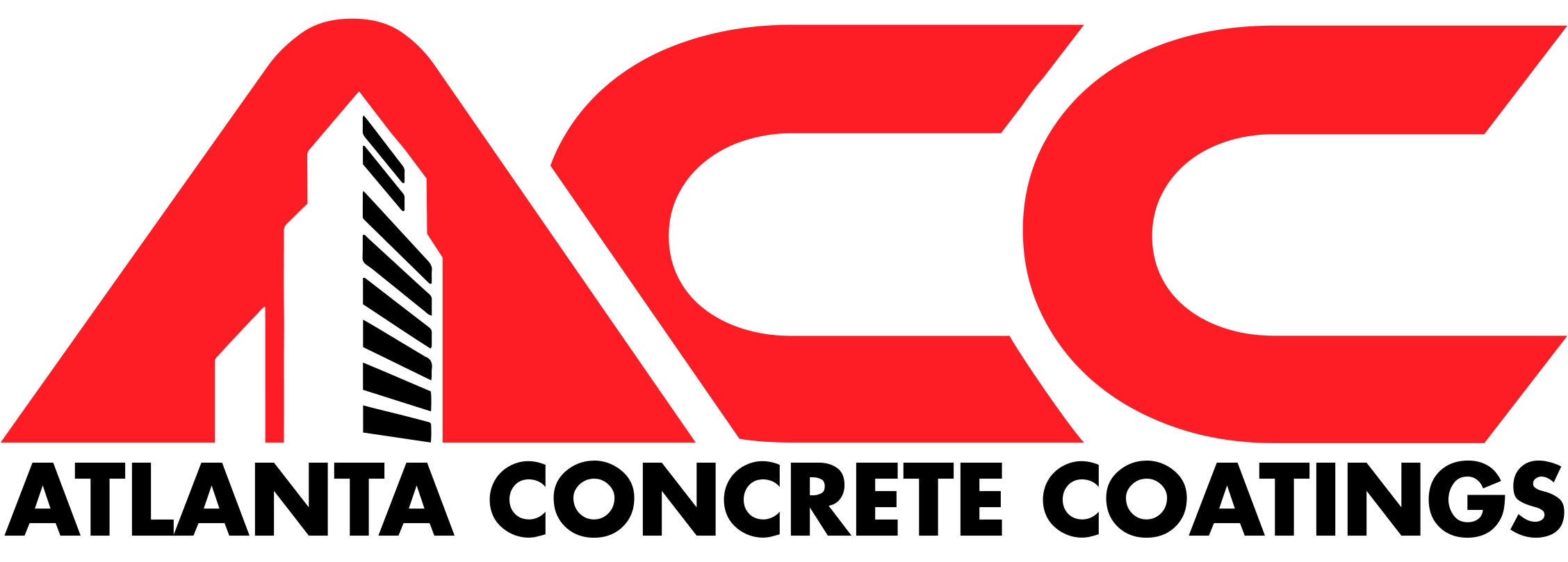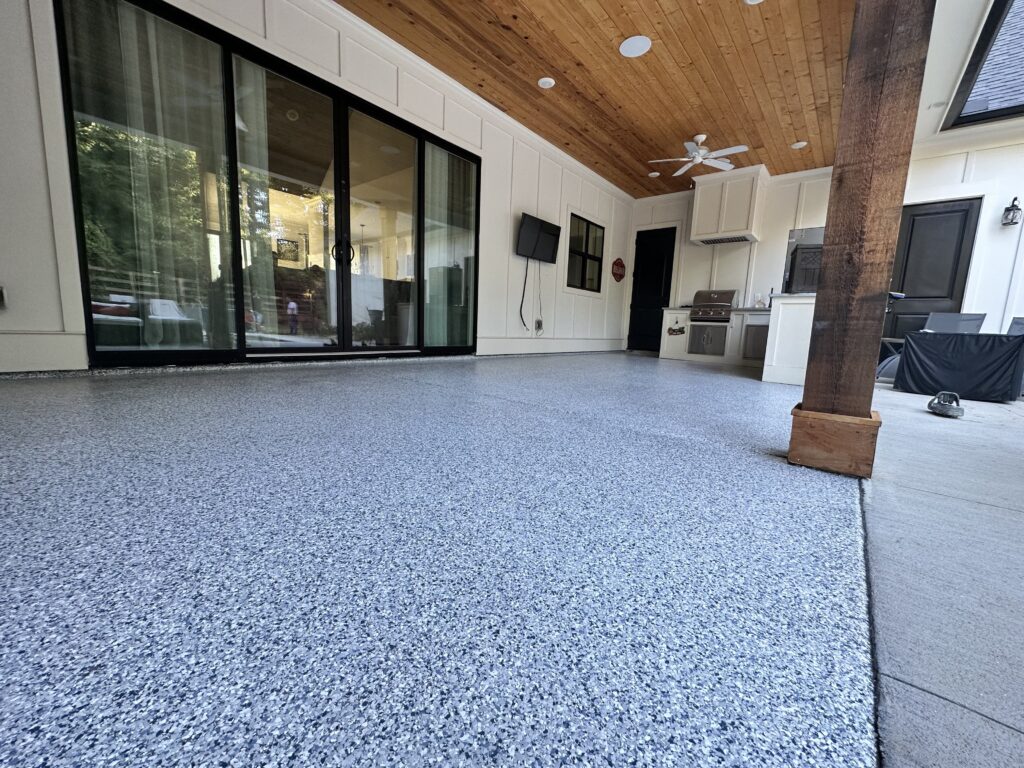Atlanta summers aren’t just hot—they’re brutal. When temperatures hit the 90s and stay there, your concrete floors take a serious beating. Whether it’s a garage, patio, or commercial space with exposed concrete, heat damage can sneak up fast and lead to expensive repairs if ignored.
In this article, let’s look at how extreme heat impacts concrete surfaces and what you can do to protect your property this season.
What Heat Does to Concrete Over Time
Concrete expands when it heats up and contracts when it cools down. That constant cycle, especially common during Atlanta’s hot days and cooler nights, causes micro-movements. While small, these repeated shifts create internal stress that weakens your concrete over time. You might not notice the damage right away, but eventually, it shows up as:
- Cracks forming or widening
- Surface flaking or spalling
- Uneven coloring or blotchy patches
- Chipping around expansion joints or edges
- Increased surface dust (a sign of wear)
Driveways, walkways, garages, and even warehouse floors are all vulnerable to this kind of thermal movement. And once those cracks start, moisture from summer storms can seep in and make things worse.
Atlanta Humidity Adds Another Layer of Risk
Heat isn’t the only issue. Georgia’s summer humidity creates an ideal environment for moisture to linger on concrete surfaces. As the concrete absorbs water and then dries again, it undergoes another type of stress, known as moisture cycling.
This not only speeds up wear and tear but also encourages mold and mildew growth in shady or poorly ventilated areas. That’s especially important for garage floors and warehouse entries where water can pool and stagnate. Over time, moisture damage can undermine the structure beneath the surface, leading to crumbling edges and trip hazards.
How Polyurea Coatings Protect Against Heat Damage
A polyurea concrete coating creates a powerful barrier that prevents heat, water, chemicals, and UV rays from reaching the concrete below. Unlike epoxy or paint, polyurea is engineered to flex with your concrete—expanding and contracting without cracking or peeling.
Other benefits of using polyurea coatings in hot climates like Atlanta include:
- Rapid curing, even in high temperatures
- UV resistance that keeps your floor from fading or yellowing
- Chemical resistance against car fluids, pool chemicals, and lawn fertilizers
- Slip resistance for added safety in wet areas
- Easy maintenance—a quick rinse and sweep keeps it clean
That’s why more homeowners and business owners across Georgia are switching to professional-grade concrete coatings that can handle our climate.
What Happens Without a Coating?
If your concrete is bare or has an old coating that’s flaking, the summer heat is already doing damage. You may notice the surface feels dusty or gritty—this means the top layer is slowly deteriorating. Cracks may widen, and color may fade in the sun. If you use your garage for hobbies or storage, you may find it harder to keep the space clean or control odors caused by moisture buildup.
The longer you wait, the more costly the repair becomes. Unsealed concrete is also harder to refinish if it’s already damaged, which makes coating sooner a better investment.
Can You Apply Floor Coatings in Summer?
Yes—and it’s one of the best times to do it. Many homeowners assume that heat makes coating difficult, but it’s quite the opposite. Warm weather helps the material bond faster and more efficiently, which speeds up curing time and gets you back on your floor sooner.
That said, installation does require professional timing and prep. Concrete needs to be dry and properly profiled before the coating is applied. The installer will also monitor air and surface temperatures to make sure conditions are just right.
The Bottom Line: Summer’s the Right Time to Act
Summer creates ideal conditions for applying protective floor coatings, with warmer temperatures and lower humidity, ensuring proper curing and adhesion. Heat accelerates drying times, while dry concrete allows for optimal bonding. The reduced humidity means fewer moisture-related problems, and you’ll have your floors protected before winter’s harsh conditions arrive.
Once applied, these coatings shield against oil, chemicals, water damage, UV rays, and daily wear. Think of it like sunscreen for your concrete. Just as you wouldn’t spend hours in the sun unprotected, your floors shouldn’t either. A protective coating saves you from expensive repairs while improving your space’s appearance and functionality.
Don’t wait! Contact us today to protect your concrete investment before summer ends!

